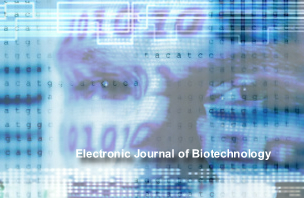
|
Electronic Journal of Biotechnology
Universidad Católica de Valparaíso
ISSN: 0717-3458
Vol. 5, No. 1, 2002, pp. 64-92
|
 Bioline Code: ej02014
Bioline Code: ej02014
Full paper language: English
Document type: Review Article
Document available free of charge
|
|
|
Electronic Journal of Biotechnology, Vol. 5, No. 1, 2002, pp. 64-92
| en |
Biotechnology and the developing world
DaSilva, Edgar J.; Baydoun, Elias & Badran, Adnan
Abstract
The life sciences offer opportunities for revolutionizing human welfare activities. Enriched by inputs from genomic research, biotechnology is a major force for development in all countries. Entwined with culture and socio-ethical values, biotechnology contributes to solving problems like food and water insecurity that impede national development and threaten peace in the developing world. The lack of facilities and professional skills in biotechnology limits R & D initiatives in the developing and the least developed countries (LDCs); and, restricts their full participation in take-off activities in national and self-reliant regional ventures in sustainable development. The practice of biotechnology different in many developing countries is nevertheless impressive. The establishment of biotechnology parks and medicinal plant farms in several developing countries is indicative of biotechnology being accorded high policy status in national development; of its significance in the eradication of poverty; and of its use in the empowerment of women in applying the technology for human and social welfare. This review provides several examples of different types of biotech activities that are being employed for development in the developing world.
Keywords
Biotechnology and development, Biotechnology parks, Capacity-building
|
| |
© 2002 by Universidad Católica de Valparaíso -- Chile
Alternative site location: http://www.ejbiotechnology.info
|
|
